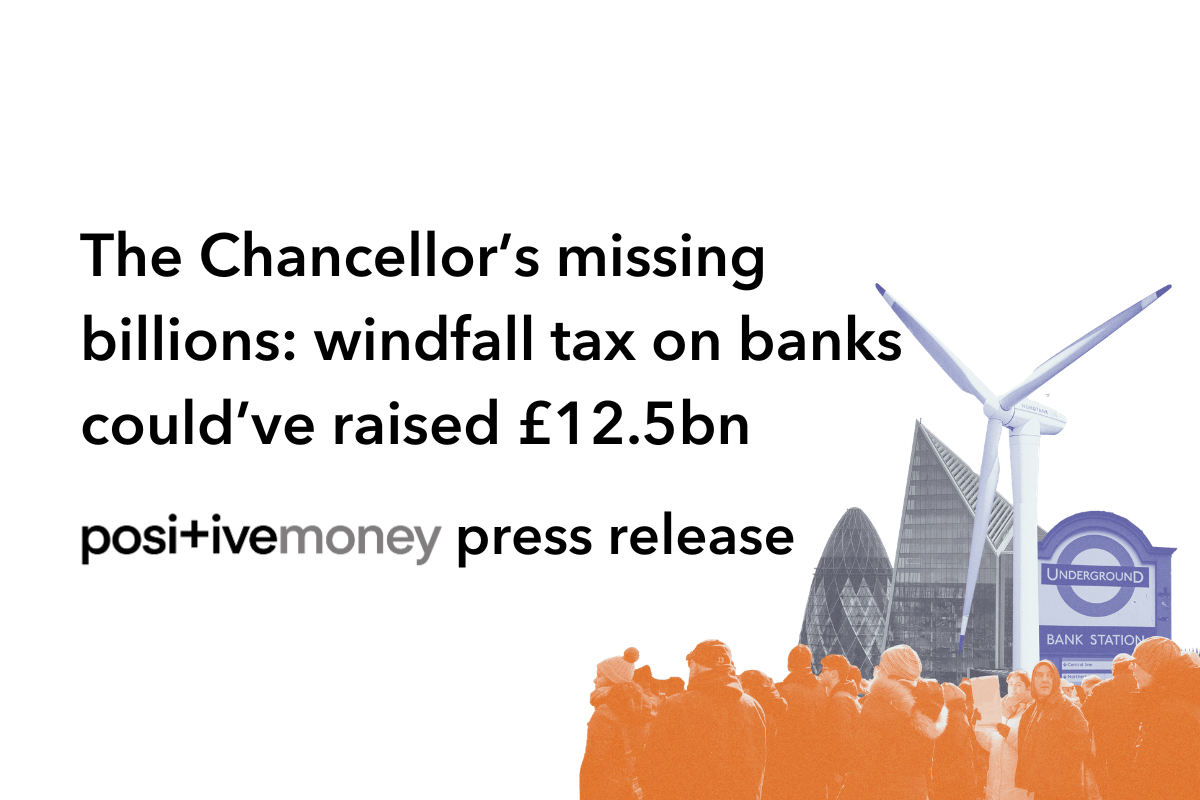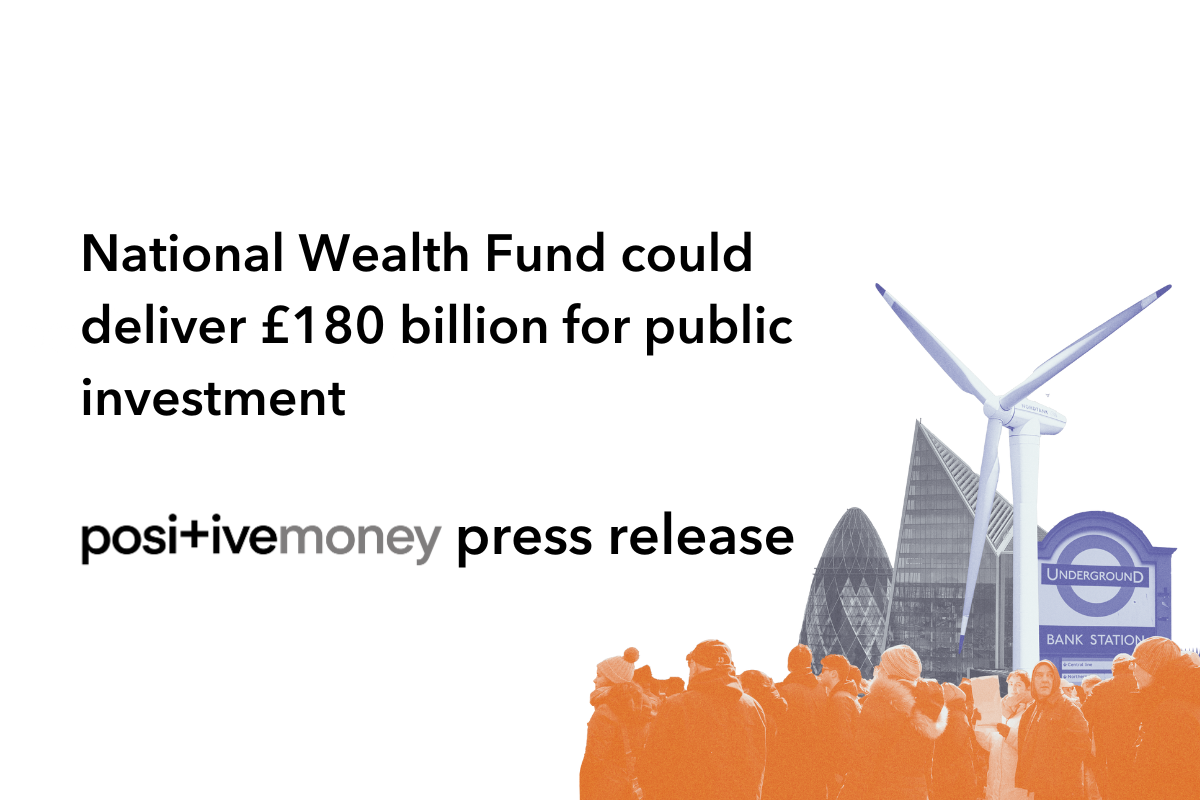
Monetary policy and inequalityUK
25 February 2026
New analysis suggests public fund could unlock hundreds of billions if designed well
London, 2 September 2024 - Fresh analysis from research and campaign group Positive Money suggests that the government’s new National Wealth Fund could be empowered to use its recent £7.3 billion funding boost to mobilise £180 billion for public investment by the end of this Parliament.
The National Wealth Fund (NWF) was announced by the new government shortly after taking office, and will align the UK’s existing public development banks - the UK Infrastructure Bank (UKIB) and the British Business bank (BBB) - under one umbrella. In early July, the Chancellor announced £7.3 billion of new funding for the NWF, on top of UKIB’s existing financial capacity of £22 billion.
The new analysis, A National Wealth Fund for a just green transition, argues that for the NWF to function like Germany’s public investment bank KfW - which its architects have likened it to - it must be able to raise its own funds, as KfW can, rather than relying on restricted pots of money from the central government.
If the initial £7.3 billion from the government takes the form of equity capital - that is, money that the NWF owns which isn’t tied to debt - this would give it £12.3bn of capital, factoring in the £5 billion equity capital UKIB already has. Using the same leverage ratio as KfW, it could use this to mobilise £180 billion of investment, according to Positive Money. If the NWF consolidates UKIB and the BBB’s balance sheets, this could give it as much as £15.5bn of equity capital, which could mobilise around £228bn.
Over time, UKIB could be further capitalised by the government, with Positive Money suggesting that it could aim to mobilise £250bn over 10 years with £20bn of capital. If the NWF is to reach the same per-capita scale as Germany’s KfW, it would need to grow to £460bn, which would require £40bn of capital to maintain a more conservative 8% leverage ratio, or £31.bn with KfW’s 6.8% ratio.
Key to the NWF’s success, the research argues, is excluding its borrowing from the government’s fiscal rules, including public sector net debt (PSND). This isn’t uncommon practice; excluding public financial institutions like the NWF from fiscal rules would bring the UK in line with other European countries.
Recommendations also include a strong trade union and civil society presence on the governance boards and committees of the NWF, as well as mandates for it to support government missions like a just green transition, to ensure its primary purpose is to serve the public.
These recommendations arise from what Positive Money sees as overrepresentation of the financial industry in the National Wealth Fund Taskforce - a body Labour commissioned whilst in opposition - which includes the CEO’s of NatWest, Aviva and Barclays.
Simon Youel, Head of Policy and Advocacy at Positive Money and author of the research, said:
“Labour has an opportunity with the NWF to establish a long-lasting, legacy public institution.
“The NWF isn’t just an opportunity to deliver social and environmental value to the public after years of underinvestment. It’s a chance for the public to finally start seeing some returns on their investment, instead of the “privatised rewards, publicised risk” model that has become all too familiar in recent decades.
“With genuinely ambitious mandates, objectives and financing power, the NWF could join the ranks of purpose-driven public banks the world over, and demonstrate the potential of public finance to deliver truly transformative change, such as the rapid and just decarbonisation of our economy and infrastructure.”
Notes
The briefing will go live on this link shortly before the embargo is lifted: https://positivemoney.org/publications/a-national-wealth-fund-for-a-just-green-transition/
The government’s initial National Wealth Fund announcement can be found here: https://www.gov.uk/government/news/boost-for-new-national-wealth-fund-to-unlock-private-investment
Members of the National Wealth Fund Taskforce can be viewed here: https://www.greenfinanceinstitute.com/programmes/national-wealth-fund-taskforce/
About Positive Money:
Positive Money is an international research and campaign organisation working to redesign our economic system for social justice and a liveable planet. Set up in the aftermath of the financial crisis, Positive Money is a not-for-profit company funded by charitable trusts and foundations, as well as small donations from its network of supporters. Find out more: www.positivemoney.org
